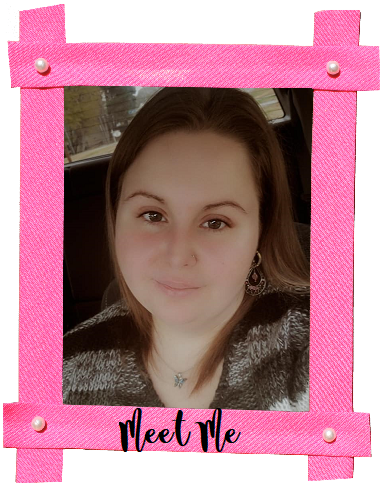It's 3 a.m.
I woke up to use the bathroom and now I can't go back to sleep - I feel the urge to write some more and knowing me, when I have significant thoughts consuming my mind, I won't be able to rest until I deal with them, by which, I also want to take the opportunity to express these thoughts; one, while they are still fresh in my mind and two, to take advantage of the spark I actually have to write. I prefer to write when I feel that I'm in a place where I can express my thoughts sufficiently, but more so, when I feel that I can actually achieve completeness of those thoughts. While in the process of doing my business, I felt the need to reflect back on the previous day. I had a follow-up appointment yesterday with my primary doctor, so that he could complete my fitness for duty form in order for me to return to work on Monday. I wasn't only excited to get the fitness for duty form filled out in order to return to work, but I also wanted to share with him what I have worked on thus far with my self-guided research in psychology that I began merely two weeks ago. I would like to make note on two additional aspects of my previous writing.
Where I wrote and thought, "How could you take the easy way out?" (in reference to my father passing), though I didn't know how to make sense of that feeling at the time, I can confirm that was definitely more of an irrational thought than what it had actually seemed for me in the moment than it does now. In all actuality, it was more of a "feeling" than a thought. That thought derived from the fact that practically his entire life, he created me, caused all of this chaos and turmoil in my life and refused to take accountability for his actions and behavior. Then when he died, I translated that as, "Oh, so you're just going to dip and not finish what you started - you're not going to see this through?" I was still here and he wasn't - I felt like he had left me here to figure this all out for myself. Almost like, you created the problem and now you're just going to walk away? I told Jason last night that the day I found out that he died, it felt like a demonic force was leaving my body. That was a very irrational thought (How could you take the easy way out?), but then again, he was a very irrational person - makes sense right; that I would have that thought as it pertained to him? He was an impossible person and even though he created the problem, I found myself wanting to help him - I wanted him to find resolution in the same way that I desired to find resolution for myself, hence, being my father's keeper. When I reflect back, it wasn't my problem to solve; that was a him problem, not a me problem. However, I digress because it's neither here nor there. I just wanted to make note of the progress here in my evolution.
The second aspect of my previous writing that I would like to reflect more on, is when I made brief mention of my doctor and I having a very trusting patient to doctor relationship. Finding a good doctor is hard to find these days, especially when you have complex issues. Trust on both ends is a difficult feat in itself and for very valid reasoning. For the doctor, there are so many patients that take advantage of doctors in order to get what they want and it ruins it for the ones that need. For the patient, there are doctors out there who, unfortunately, ruin the reputation of the doctoral world for the few (by comparison in the grand-scheme of things) good doctors that are out there. A part of being a doctor is experiencing the revolving door effect, but a good doctor won't let that revolving door trap them in the process like a maze of mirrors. What stands apart a good doctor from a bad doctor (at least in my opinion), is that a good doctor, regardless of the size of his caseload, will maintain a level-mindedness about him or her self; someone who will actually listen, not just hear what the patient has to say; someone who is not just there for the paycheck and who doesn't rush you through the appointment, reasonably of course because they do have other patients to see; who not only have education but also credible experience that coincides with each other; allows the patient to participate in their own treatment plan and doesn't just try to push agendas or medication; doesn't rush into a diagnosis because we all know where that leads - I prefer a doctor who thinks outside of the box, moreso, has the ability to put the text-book aside when it's necessary - not every patient fits the text-book definition. And of course, having good bedside manner is a must. You may ask, "So, what do you consider to be a bad doctor?" The answer to that is simple - everything opposite of what makes a good doctor, duh! My doctor is a good doctor, gold even.
I'm that person - the person that doesn't fit the text-book definition and complexity is the main reason for that. In terms of complexity, I'm more referring to my mental rather than physical. I use to be so wrapped around the idea of needing a diagnosis but he helped me to understand that putting a label on it is much less important than actually treating the symptoms. A lot of doctors rush into a diagnosis, not realizing that doing so often leads to misdiagnosis and that has so many potential dangers to ones well-being. I understand this to not always be the case and that it could be more that there are so many symptoms can present themselves in a multitude of different diagnoses - I mean, just a hunch...I'm not a doctor or anything. In sum, credibility is everything when it comes to trust and if you're self-righteously cocky, that's a huge red flag, especially in the doctoral world. By nature, no one likes a know-it-all and though you may be a doctor, you're still human; staying humble is imperative in all aspects of success. By no means am I discrediting the work it takes to obtain a doctorate because I do have the utmost respect for that; it does take some balls for sure, but rather the point here is to highlight that there is more to that when it comes to the difference between what makes or breaks a doctor from being considered good or bad. Moving on, another very useful tool that my doctor provided me with was, "Listen to your body, it will tell you what it needs". It couldn't be closer to the truth because it is the truth. I always doubted myself whether it was safe for me to do this or that, but from the day he let me in on that little secret, it's never failed me - not once. Every time I see my doctor, I give him a standing ovation in my mind because if anyone has earned that, it's him and all of this patients should rightfully feel that way.
Believe it or not, I haven't actually got to the main point of this post. By right, I should make a separate post because this is going to be a torturous read otherwise, but I find it important to keep all of my thoughts on doctors here because it's an opener for my main point - I don't apologize in advance.
My doctor has witnessed me going through it in some of the worst ways for years, but he's also just beginning to experience my evolution and he is a huge contributor in that. He has treated the majority of my both my physical and mental health issues for years. Yes, he is a generalized provider but in reality, he could really specialize in just about everything. Out of every doctor I have ever seen, he has never once failed me. Things may not have always worked but that was not due to any fault of his own - those were external factors in which he had no control over. - insurance being a big bitch in that. Excuse my language. My qualms with insurance is a whole other topic of discussion and definitely requires another post. My mental health issues were the seat of my problems (something else he helped me realize) that led to a good majority of my physical health issues; I had to accept that in order to fix both and it took me years to wrap my mind around that. Getting to the point...
I felt particularly inspired to share what I've been working on with my doctor because I knew he would not only respect it and appreciate it, but further encourage it - he was partly to thank for this revelation of mine afterall! His take on things has always been of importance to me as it aids me in making the conscious decision on whether or not to keep going with what I'm doing. I also take heed when he cautions me. He exceeded my expectations when it came to his reaction for sure on what I shared with him. As I stated in my last post, I took up a recent, very keen interest in psychology. I believe that interest was always there but I repressed it. Hell, I always aspired to become a psychologist since my childhood days. After sharing my project with him, his response was, "are you sure you don't want to pursue a degree in psychology?" That's a valid form of respect to me.
I've been dabbling in the workings of Sigmund Freud and Carl Jung with a primary focus on how the brain works in relation to the psyche. My research will eventually expand way past that, but for now, this is where I'm at. It was essential for me to get a thorough understanding of how the brain works because without it, you can't live. If you can't live, well, then the reason I'm conducting this self-guided research wouldn't matter to begin with. I want to make note that, I'm not very fond of Sigmund Freud for obvious reasons but he does undeniably have some beneficial insight behind some of his work. I have a lot more respect for Jung's work for sure - he has more of the qualities I described in being a good doctor which is why it was imperative for me to keep my thoughts on what makes a good doctor together with this piece. However, there are things that I both agree and disagree with them on.
Let me just put this here for good measure and so that I can also refer back to it as I continue on here...
Disclaimer: Before you have a look, please understand that one, it's not complete and two, I'm not entirely sure that my conclusions are completely sound but I'm just about 90% sure they are. This is a rough draft, so please be kind.
(You can click on this to enhance it for further viewing purposes)
As you can see, I have taken both the iceberg model of the psyche from Freud and Jung's model of the psyche and through other various forms of research, I have constructed some of my own thought process while attempting to compare and contrast the two. I feel very compelled to take these two models and make them whole because it makes sense to, but also, I find it very beneficial to do so as well. The above is what I was able to come up with in just two weeks time. Drawing sound conclusions is hard stuff, especially when most of it is subjective in nature. I have found solace in the fact that there are many people, including myself who both agreed and disagreed with both of their work, so I know it will be unavoidable that not everyone will agree with mine. I'm not looking to succumb to self-righteousness like Freud did. I'm open to perception, perspective and constructive criticism - it's the only way to grow so it's necessary to keep bias out of it. There is no need to explain my interpretations here, it's all within their models and my hypotheses around them. There could already be some research out there that concurs with mine but I assure you that mine was not pre-meditated using the research of others, other than these two models from Freud, Jung and the inner workings of the brain.
It's now 5:26 a.m. I'm going back to bed. Good-night!
Oh, and one last note: now I'm beginning to understand why Jung stressed the importance of active imagination when I refer back to Alice in Wonderland and why Alice had to slip away from the collective in order to find herself. Alice: "I don't think...", Mad Hatter: "...then you shouldn't talk!"











































